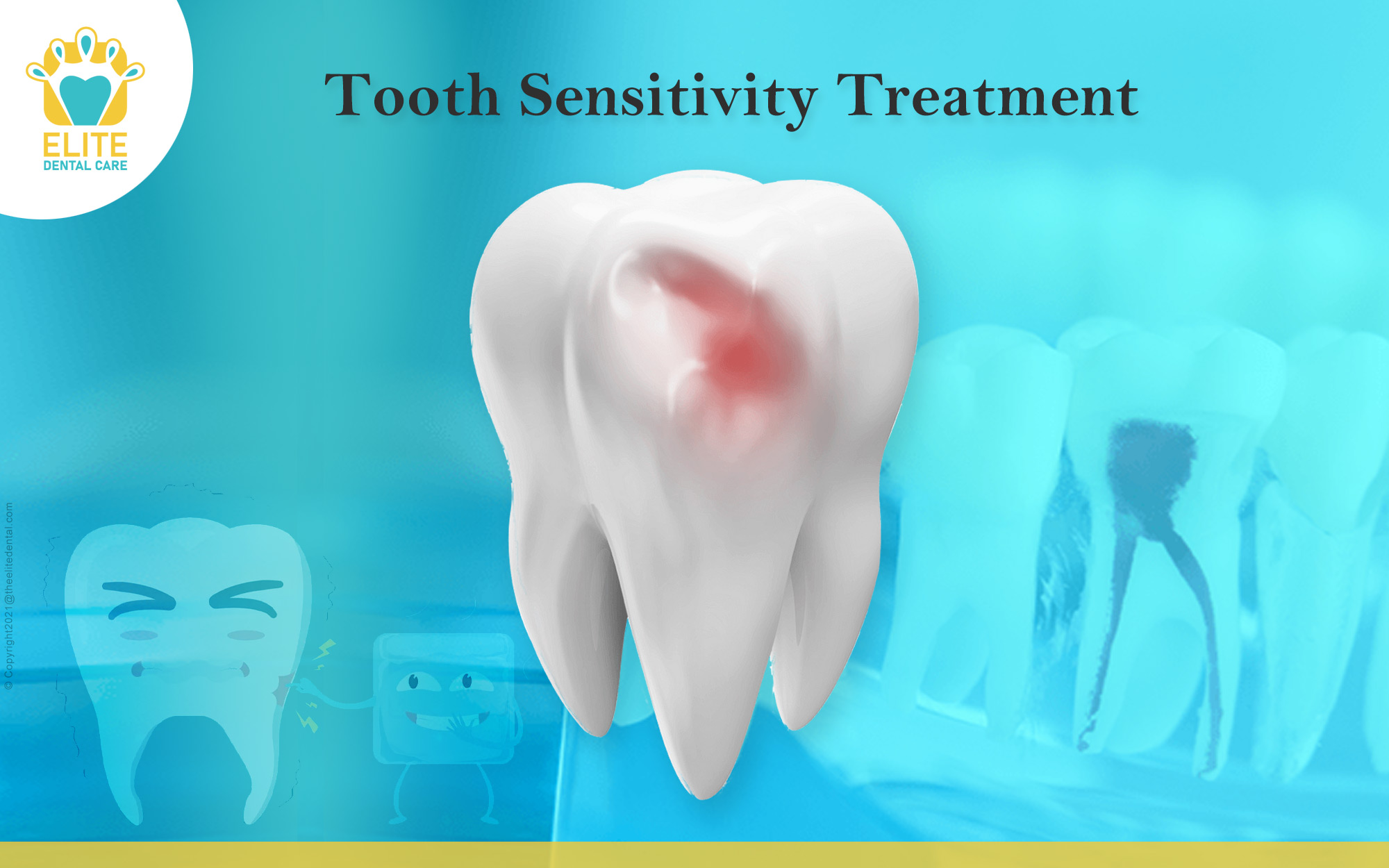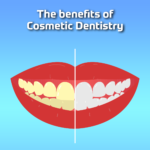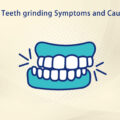
dental caredenturesflossingoral healthRoot Canal TreatmentUncategorized
edental
3 March 2022
Tooth Sensitivity Treatment: Causes and Treatment
Have you ever experienced discomfort on your teeth after eating ice cream or hot soup? If that’s the case, you’re not alone. While pain from hot or cold foods may indicate a cavity, it is also common in people who have sensitive teeth.
Tooth sensitivity, also known as “dentin hypersensitivity,” is the sensation of pain or discomfort in the teeth due to certain stimuli, such as hot or cold temperatures. Issues can be both short-term or long-term, and it does affect one or more teeth. Various factors can cause it, but most cases of sensitive teeth are easily treated with a change in oral hygiene.
An enamel layer acts as the protection or the crowns of your teeth—the part above the gum line—in healthy teeth. A layer called the cementum helps protect tooth roots beneath the gum line. Dentin lies beneath both the enamel and the cementum, and Dentin has microscopic tubules and is less dense than enamel and cementum. When the protective covering of enamel or cementum on dentin wears away, these tubules allow heat and cold, acidic, or sticky foods to reach the nerves and cells inside the tooth. When the gums recede, the dentin may be exposed. As a result, hypersensitivity may develop.
Symptoms of Sensitive Teeth
People who have sensitive teeth may feel pain or discomfort in response to specific triggers. The roots of your teeth (affected ones) will ache. The following are the most common triggers:
- Hot foods and drinks
- Cold beverages and foods
- Cold air sweet foods and drinks
What causes sensitive teeth?
Some people are born with more sensitive teeth than others due to thinner enamel. The enamel is the tooth’s outer layer that protects it.
Tooth decay, broken teeth, chipped teeth, and worn-out fillings or crowns can expose the tooth’s dentin, resulting in insensitivity. If this is the case, you will most likely only feel sensitivity in one tooth or region of the mouth rather than the majority of teeth. Following dental work such as crowns, or teeth bleaching, your teeth may be temporarily sensitive. Sensitivity is usually limited to one tooth or the teeth surrounding the tooth that received dental work in this case.
Talk to your dentist about finding a solution if your tooth sensitivity makes it difficult to eat. There are many over-the-counter kinds of toothpaste and mouthwashes designed for sensitive teeth.
Consult your dentist about prescription toothpaste and mouthwash if these do not work. You should also schedule an appointment with your dentist if you have symptoms of cavities or potential root damage so that you can receive treatment as soon as possible and avoid complications.
Top Teeth Sensitivity Treatment
Using Desensitized Toothpaste
Desensitizing toothpaste contains ingredients that protect nerve endings from irritants. Potassium nitrate, a compound that blocks pain signals traveling from a nerve in your tooth to your brain, is the most active ingredient. Your sensitivity will decrease after a few uses. Dentists also recommend using a soft-bristled toothbrush and fluoride or low-acid mouthwash.
Rinsing with Salt Water
Salt is an antiseptic that can also help reduce inflammation. Gargle with a saltwater rinse twice daily to relieve pain from sensitive teeth. Follow these simple steps to use a saltwater rinse:
- Mix 12 to 34 tsp salt into a glass of lukewarm water
- Keeps swishing the solution in your mouth for 30 seconds
- The solution should be spit out
Using Soft Toothbrushes
Changing your toothbrush is a simple way to relieve sensitive teeth. If you use a toothbrush with stiff bristles, you may be exacerbating your condition. Stiff bristles and abrasive toothpaste damage enamel, causing more microscopic holes and, eventually, increased sensitivity. They can also deepen gum recession, exposing dentin and causing sensitive nerves. To preserve the surface of your teeth and the integrity of your gums, use a soft-bristled toothbrush and brush gently.
Turmeric
Turmeric is helpful as an anti-inflammatory treatment in addition to cooking. Turmeric contains a compound known as curcumin that is known for its anti-inflammatory properties. It is an essential medicine in Ayurveda, digestive disorders, and wound-healing agents.
Massage ground turmeric on your teeth to better oral health and relieve pain from sensitive teeth. Make a topical paste with 1 tsp turmeric, 12 tsp salt, and 12 tsp mustard oil as an alternative. Apply this paste to your teeth and gums twice a day for pain relief.
Checking Gums regularly with the dentist
Gum disease or receding gums can be a significant cause of tooth sensitivity. The teeth with no enamel (below the gum line) become exposed as the gum tissue breaks down and moves away from the tooth surface. This act leaves nerves vulnerable and can cause significant discomfort. Visit your dentist occasionally to examine your gums and ensure you don’t have gum disease that needs to be treated. Healthy gums help in protecting teeth along with preventing tooth sensitivity.
Relieve pain using Clove
Cloves and clove oil are analgesic, anti-inflammatory, and germicidal. This means they can reduce inflammation, bacterial overgrowth, and pain. When swished in the mouth as an extract, Clove can have a numbing effect that relieves tooth sensitivity. Clove oil’s analgesic properties can be enhanced further by combining it with orange essential oil. These essential oils are highly concentrated and should only be used in small amounts in a carrier oil such as coconut or avocado oil.
Conclusion
No one has to live with sensitive teeth for long. Thankfully, as mentioned above, there are remedies that you can follow that can help bring down sensitivity.




